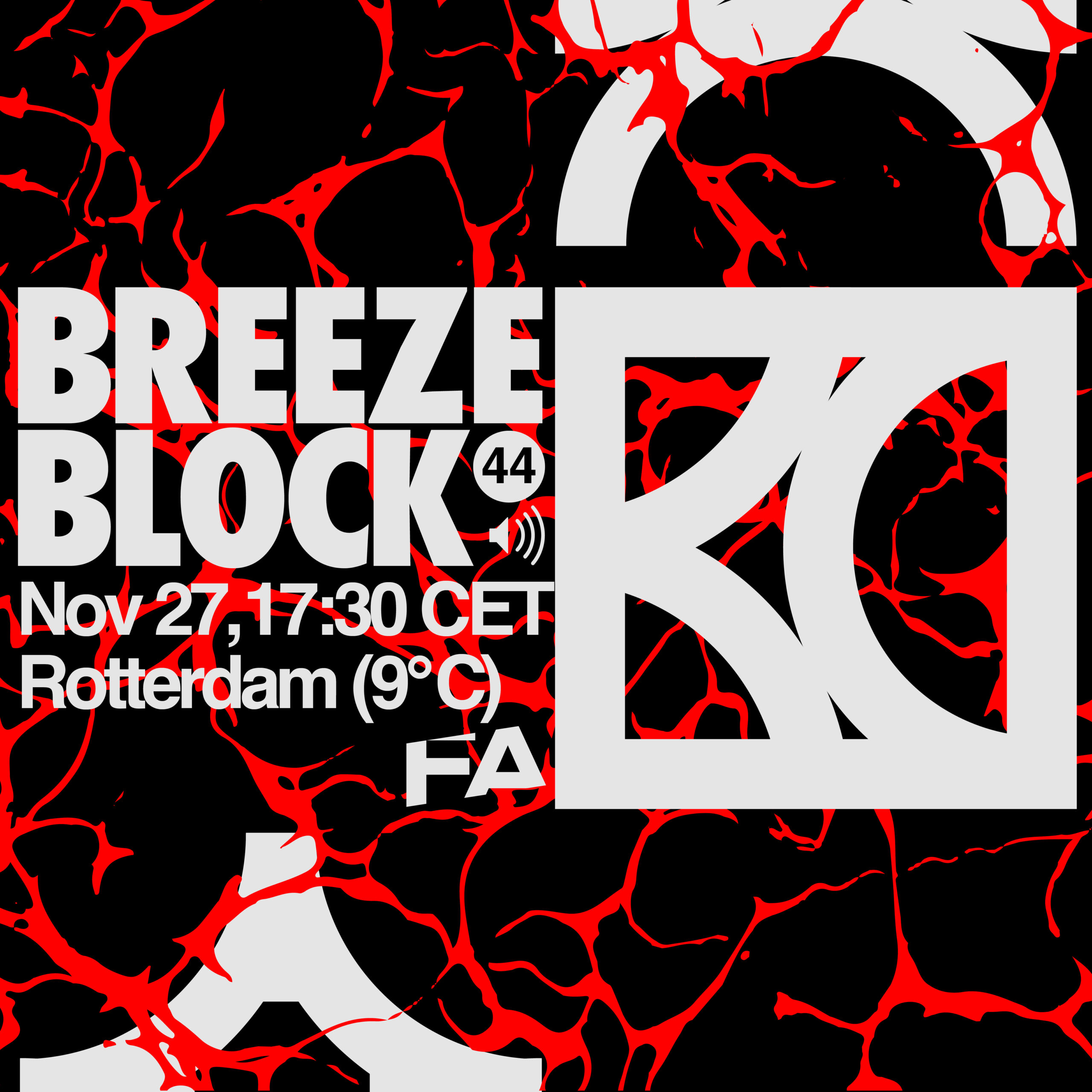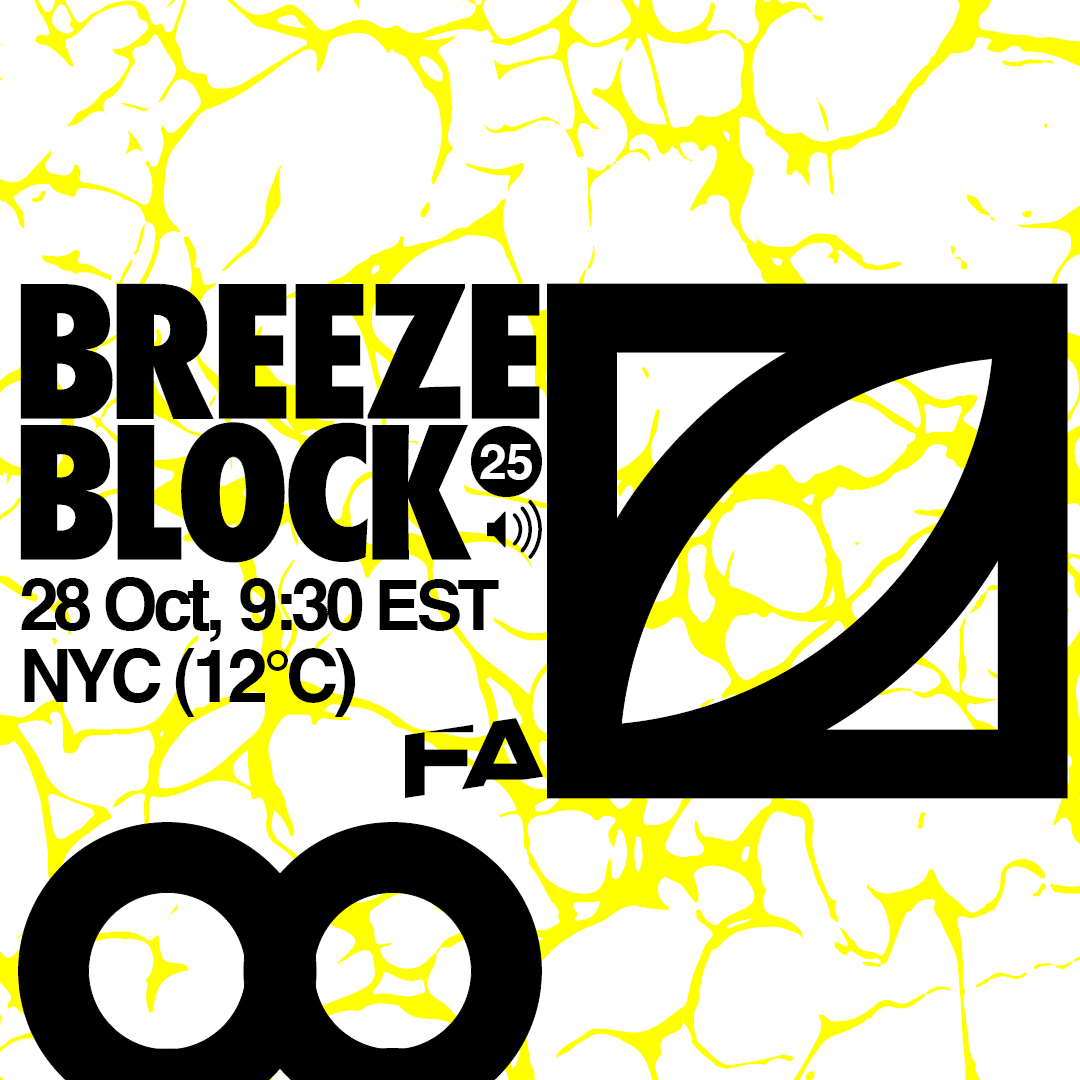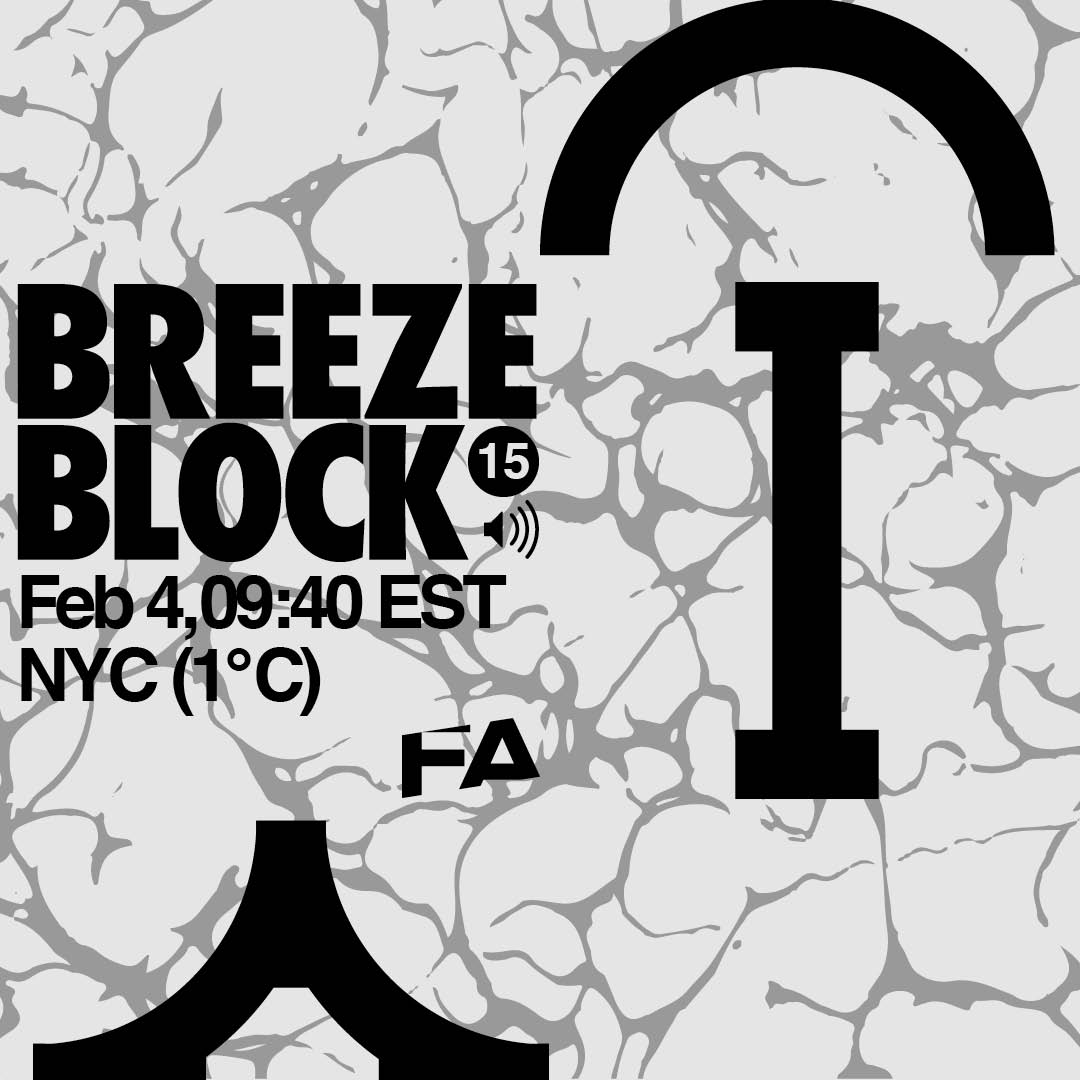Episode Transcript
Speaker 0 00:00:04 Welcome to field architecture, breeze blocks, where our editors shared your thoughts on work in progress, urgent matters, and current happenings in architecture and spatial politics. My name is <inaudible> organizer at field architecture, and today I'm joined by <inaudible> two architects from Bethlehem Palestine. Hey guys. Thanks for joining. How is your morning?
Speaker 1 00:00:23 Good morning. Good morning. Perfect. How are you? Yeah, everything,
Speaker 0 00:00:26 Everything well here in the, in Amsterdam. Um, yeah. So I've been following your, your wonderful practice for many years, and even at the honor to see some of your work and your Bethlehem two years ago, but I was also completely surprised with the fascinating new project that you started exactly one year ago at the online radio station at Johara. Could you maybe tell me what is this project about?
Speaker 2 00:00:49 Um, so we started this radio project last March at the beginning of the lockdown, the complete lockdown we had here in Palestine. And, uh, the idea was that there was no idea, basically, that it was just a new initiative that we launched with a few friends. We wanted to do something together since a long time. And, uh, the lockdown was, uh, let's say between brackets between big, big brackets and opportunity to do, uh, this, uh, project together and, uh, uh, very quickly this project, uh, evolved and is still evolving everyday into new shapes or new forms in the beginning. The idea was to in times where public spaces were inaccessible, create a platform which, which can be a sort of an alternative to public spaces. So even the way it used to work, we had a very public link, a public platform, and people would upload their files to this public link in that program so that there was, uh, no creation, no censorship, no nothing.
Speaker 2 00:01:48 It was just a sort of a sound of the public sound of the public on the radio as in a public space. So, so people would say, uh, everything and nothing in a space that this is a virtual and the idea was to keep it only audio based was also a sort of a reaction to the, uh, you know, during the lockdown, there was a huge invasive image base feeding of the public with images from everywhere, all the museums, but their archives, online videos, everything footage, everything was very based on the image. And the idea of the radio was to sort of react to this tendency and have, uh, an exclusively Sonic space that has actually the, the results of what we did were not really a foreseen. I mean, the radio is a sort of a reaction to a framework and the framework keeps on evolving and the radio keeps on evolving with that, uh, what particular frameworks.
Speaker 2 00:02:45 So at one point it was a sort of a reaction to this envision of image based materials. But a few weeks later it was, uh, reacting to a, an event called the film mishmash that we did was sort of a reaction to the, uh, annexation plan here in Palestine. A few months later, uh, it reacted to other frameworks in which we operate. So the radio isn't really something with a specific goal and it has no real curation, but it's more like a space that reacts or has a sort of, uh, yeah, reacts to different states of politics of culture. The social conditions, uh, et cetera,
Speaker 3 00:03:31 Is mentioning is there's as well. This idea that is, um, you know, with the presence of internet and especially internet during the pandemic where you're nourished by this excess of, uh, amount of images, the radio is giving another dimension of freedom because you only have sound and therefore you have, uh, a possibility to share your own image and, you know, be engaged within what's being said or what what's the different sounds that are offered by the radio.
Speaker 0 00:04:01 Yeah. Fantastic. I mean, yeah, there's so much India, right? I mean, um, many of us were forced to, you have to force yourself behind the camera in zoom space. And then in the meanwhile you were crafting this almost globally dispersed Sonic space, right. That people could tap into. I thought that was really fascinating. And can you maybe say something how that could evolve over the year? So where does it stand now to project?
Speaker 3 00:04:24 You know, it started very quickly by, as you said, mentioned at the beginning of the conversation with a group of friends, he has an led that is a visual artist based in Ramallah Sahid <inaudible> graphic designers based in a man. And the idea at the beginning was just using that platform to exchange music and thoughts on a daily basis. And gradually it evolved in ever evolving community. And this community is actually shaping the sound and the region today is the radio of this entire community that counts. I mean, we have up until today, we're counting over 155, uh, residents and we have as well, like many one-offs, um, contributors. And I think one of the importance, and one of the things that we're trying to maintain is the idea that the radio doesn't have a very specific objective. It's really representative of a public space where there's an emptiness, there's a form of emptiness and this emptiness is, um, formed by the different elements of content that are coming through on a daily basis. So there's, there's, there's a very, there's a very strong link to architecture in that sense.
Speaker 0 00:05:34 Yeah. So w what does it mean for an architect to start a radio station?
Speaker 3 00:05:39 It's, there's, there's different things or different conceptions that would, um, involve space and the kind of Sonic space, because there's, first of all, the idea of the community where, you know, I think the more we go in time, the more we have to think collaboratively, and even in when, I mean, for, for us, for example, within the framework of our practice, uh, when we design a project, a specific building or a piece of territory, we are trying to engage with the users. We're trying to engage with the people that are, uh, implementing the project. And it's, it's not like trying to design something from one end and trying to propose it into the production of it, or the way it's going to be used by the community. But it's the idea of, uh, bringing down or flattening things at a very early stage. And I think the radio is quite representative of this process or this kind of idea of practice where there's a, there's a common force. There's a common ground where things are exchanged and built up from scratch.
Speaker 2 00:06:43 I would also say that the radio is, uh, I mean, less intellectual, uh, answer to your question, but the, the, um, I mean, for an architect to do this radio, at least for us, I think it was a way of getting out of the professional world of architecture, where we're actually, it's, it's been more and more difficult in terms of going out of this relation with clients. Clients are all fuckers these days. And so the radio is a, is a sort of a way of getting out of this world that is becoming more and more violent. And the radio is a place that is very friendly. There's nothing that goes wrong on the radio. And even if something goes wrong, I mean, in very concrete terms, even, I mean, if, if, if a program is late, if we missed something, if we forgot to program something, uh, uh, it doesn't really matter because it's a sort of a community it's a collective listening to, and there's a chat room on the radio, and we're actually, we met a lot of new friends and, and knew some people met other people through the chat of the radio.
Speaker 2 00:07:51 And, uh, and it's, it's sort of a communal collective space that there's a sort of a breath of fresh air, you know,
Speaker 3 00:08:00 And there's this degree of, uh, craftsmanship into the radio, I think, and the idea of craftsmanship that brings in the idea of imperfection in some way. And I think that this is, um, one of the ideas that we're trying to maintain the idea that there's, you know, you feel that it's something, uh, produced on a daily basis. There are people working behind it, but it's the work of the entire community.
Speaker 0 00:08:24 Yeah. I mean, yeah, that is also very interesting, right. This working together in a community from let's say segregated geographies, that is something that both of you living and working under Israeli occupation already, maybe also used to for a longer time. Right. Can you relate to that?
Speaker 3 00:08:41 Maybe we have this tendency to think about our practice and, um, you know, everything that you produce. I mean, of course being an architect in Palestine or being an architect in France or the Netherlands as, by the end of the kind of political act work, although when you produce a piece of territory or public institution, it's always related to a kind of, uh, a format of, uh, political input, because it's usually financed by a government it's fulfilling the needs of the citizens, et cetera. And we try to use architecture as a means of crafting the city and with trying to avoid falling into the trap of creating architecture for resistance. You know, there's a constant, uh, expectation of whatever's being produced in our region as a response off of very contextualized political situation. And I think the radio has the ability of, um, as it's a virtual space, it has the ability of connecting people that are not exposed to, uh, to a situation where they can travel freely and they can collaborate and produce together. So there's, there's this possibility of expanding territory and, uh, having the specificity of being transferred in a very specific geography.
Speaker 0 00:09:54 Yeah. Yeah. So it feels like you completely transcended, let's say the local problematic situation and like work towards this global Sonic space. Right. But at the same time, I find it also interesting, like, correct me if I'm wrong, but that also means the neighborhood right. Is a very local in Arabic. So very, let's say a local spatial metaphor, is that right?
Speaker 3 00:10:15 How does it as a very specific, uh, typology that is found in historic architecture in Palestine, but as well in the region, but for us, the idea is, yeah, it's a very strong metaphor because it's the idea of the entire planet becoming one neighborhood and the, the, the idea of the planet becoming a neighborhood, uh, hasn't become relevant, uh, the context of the current pandemic where, uh, there's, uh, there's really proximity in the way people are living and the different issues that the dependent is facing. So there's this possibility of coming together and trying to think in a very common process.
Speaker 2 00:10:53 Yeah, there was this event I mentioned before called mish-mash, that was triggered by the annexation plan by, uh, Israel. But th th this is the whole, um, I mean, the whole point relating to your question is the idea that, of course this event was triggered by this annexation plan. And we, uh, gathered together 80 consecutive hours of radio with, uh, 80 participants from all over the world, participating in that event as a massive protest on the radio against this annexation plan. But the idea is that the radio evolves beyond those predefined limits. And, uh, in, during this event, w what was really interesting is that each and every participant tried to express sort of, uh, protest against, uh, inequalities injustices from all over the world. And, uh, at the end, all of these injustices relate in that form of protest. So, you know, there's this idea that this is very common, that the situation here Palestine is a very complex situation, complicated situation, et cetera. And actually, it's not, it's just an occupation, uh, as, as, as anywhere else. And sort of the, um, 80 hours protests also served to have this common material of protest against injustices all over the world. And so it goes beyond the local problematic without denying it, but it goes beyond that, uh, local problematic, uh, so-so the radio is not only about this situation, but it's, it, it operates without any form of mind complex about it.
Speaker 3 00:12:43 It's true that there's this constant inner, when you meet people from abroad, they constantly would say, are the situation in Palestine is complicated and it's too complicated. We don't get it. Whereas in reality things are. So, I mean, when, you know, the basics of it, it's so minimal and automatically you hope you would have to engage in a way that is on the side of justice. And I think the program that was formed for the <inaudible> campaign was quite powerful because I think with the participation of people coming from really all over the world, it had the reach that's quite important and the reach of a community that is not usually exposed to what's really happening in that specific region.
Speaker 0 00:13:24 Yeah. Great. We're also nearing the end of the conversation. I was just to conclude, I was just wondering, like, uh, where would you like to take <inaudible> in the, in the time to come and yeah. What, what are your plans
Speaker 3 00:13:36 F for us is as well, a kind of, uh, experimentation on what the cultural center would be in the middle east or even, even in, in, in the wider context. Um, and w one of the things that we try to maintain is the idea that there's this malleability and the project is flexibility that would allow the project to adapt to different situations and different projects. So there's, you know, every day the project, the program evolves in a way that is undefined. And we kind of like this idea that, you know, it's quite representative of a public space where it's emptiness and this emptiness is filled with information with data, with, um, with content that's produced by the community.
Speaker 0 00:14:21 You're also saying you were planning to start a new place, right. And include the radio in that we're, uh, yeah,
Speaker 3 00:14:28 We're starting actually a new space in battleground. It's, um, it's called the wonder cabinet, and it's basically one big space that would bring together artists, artisans, designers, producers, and the idea is to, to oppose or not to oppose, but to bring together, uh, people that are behind the process of design with people that are engaged in the production and end users. So basically trying to create this fear of production that becomes a common way of producing, and is it doesn't segregate the way you conceive and produce? So it will have, it will involve a carpentry, a blacksmithing studio, the, a space for the radio in Bethlehem, our studio as well, and small components that would, uh, generate income for, for the project, like a small cafe, et cetera. So hopefully we will be honored to have you soon.
Speaker 0 00:15:20 Yeah. That would be really, really amazing. I would, I'm definitely looking forward to that. Hey, um, fan I just thank you so much for your time. I wish you all the best with looking forward to it. It's your name very soon. Thank you so much. Thank you. So thank you. Thank you.


